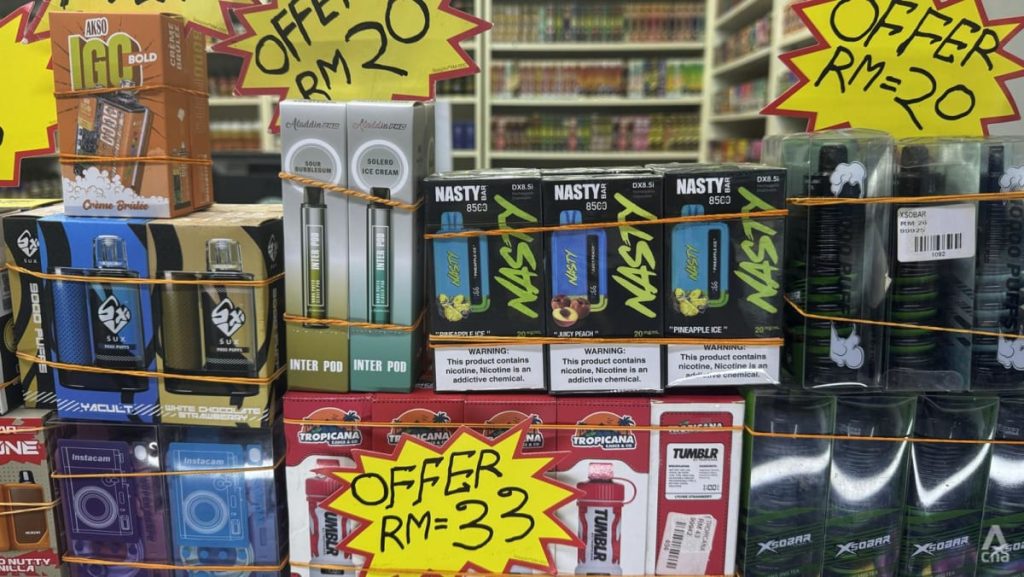Enforcement Crucial for Success of Vape Regulations in Malaysia
The implementation of new vaping regulations in Malaysia has sparked debate, with experts emphasizing the critical role of enforcement in achieving the desired outcomes. Dr. Helmy Haja Mydin, a pulmonologist, stresses that robust enforcement is paramount to demonstrate the effectiveness of tobacco control measures and build public support for potentially broader restrictions, such as a complete ban on vaping products. Historical failures in tobacco control have often been attributed to lax enforcement, creating a cycle of inaction and resistance to new regulations. Therefore, the Ministry of Health and its partners must prioritize rigorous enforcement to curb the availability and accessibility of vaping products, ultimately reducing the number of new users, particularly among vulnerable youth. Effective enforcement should target both online and offline sales channels, ensuring compliance with age restrictions and product registration requirements. This strong stance on enforcement will demonstrate the government’s commitment to public health and lay the groundwork for future legislative actions.
Health Concerns Fuel Calls for a Total Ban on Vaping
Despite regulatory efforts, some health experts, including Dr. Helmy, advocate for a complete ban on vaping. This stance is driven by mounting evidence of the detrimental effects of vaping on both physical and mental health. Studies increasingly link vaping to respiratory problems, cardiovascular issues, and mental health disorders. Furthermore, vaping is recognized as a potential gateway to nicotine addiction and other substance abuse, particularly among adolescents. The alarming rise in vaping among school-aged children, with nearly 20,000 cases reported in 2023, underscores the urgent need for preventative measures to protect young people from the harmful effects of nicotine and e-cigarette addiction. The potential long-term health consequences and the risk of addiction justify a more stringent approach to vaping regulation, potentially including a complete ban.
Challenges and Loopholes in Current Vape Regulations
While the government has implemented regulations under Act 852, including mandatory product registration, challenges remain, particularly in online sales and enforcement capacity. Despite claims that product registration has led to a significant reduction in available vape products, online platforms continue to sell nicotine vapes and e-cigarettes, often bypassing age restrictions and other regulations. This highlights a critical gap in enforcement efforts and underscores the need for greater vigilance in monitoring online marketplaces. The ease of access to vaping products online undermines the intended impact of the regulations and exposes young people to these addictive substances. Limited resources and capacity for enforcement at the state level further compound the challenges.
Johor’s Early Attempt at Vape Control: Lessons Learned
Johor’s pioneering effort to curb vaping by ceasing the issuance of sales licenses in 2016 serves as a case study in the complexities of regulating vaping products. Despite the ban on sales licenses, vape products continued to be readily available, illustrating the limitations of licensing restrictions without robust enforcement measures. The experience in Johor highlights the need for a comprehensive approach that addresses both supply and demand, including public awareness campaigns and strategies to prevent underage access. The lessons learned from Johor underscore the importance of proactive and stringent enforcement measures to complement regulatory efforts.
Prevalence of Youth Vaping Raises Concerns for Future Health
The high prevalence of vaping among Malaysian teenagers is a significant public health concern. With estimates potentially exceeding the 14.9% recorded in 2022, the widespread adoption of vaping among young people raises concerns about the long-term health implications and the potential for future nicotine addiction. The easy availability of vaping products, particularly online and prior to Act 852, contributed to the rapid increase in youth vaping. The normalization of vaping among teenagers presents a formidable challenge for public health officials and necessitates comprehensive strategies to curb this trend and mitigate the potential long-term health consequences.
Moving Forward: A Comprehensive Strategy for Vape Control
Effectively addressing the challenges of vape regulation requires a multi-pronged approach that goes beyond simply enacting legislation. Strong enforcement measures, targeting both online and offline sales, are crucial to curb access to vaping products, particularly for underage individuals. Public awareness campaigns that educate the public about the health risks associated with vaping, especially for young people, are essential. Investing in research to further understand the long-term health implications of vaping will inform future policy decisions. Collaboration among government agencies, health professionals, and community organizations is vital to achieve a comprehensive and sustainable approach to vape control in Malaysia. The current focus on enforcement provides a crucial foundation for building a more robust framework that effectively addresses the public health challenges posed by vaping and protects the health and well-being of future generations.

